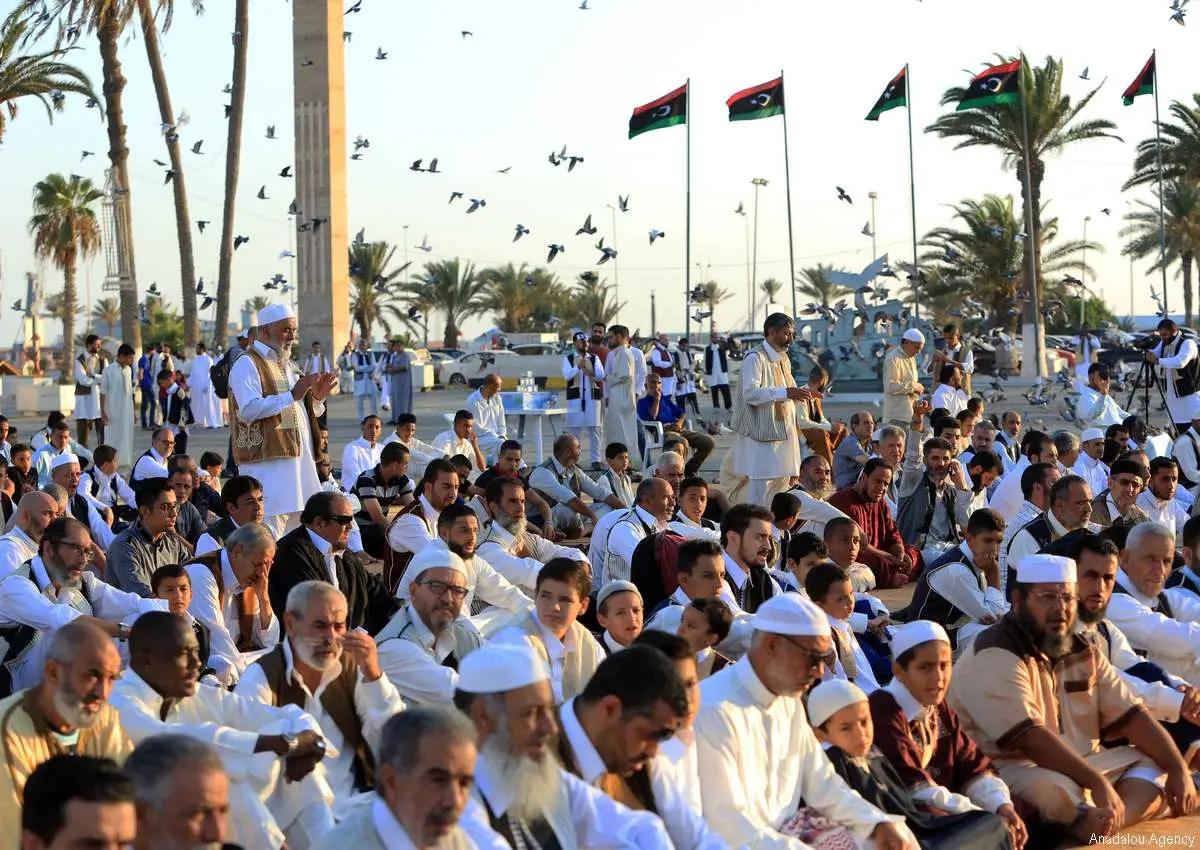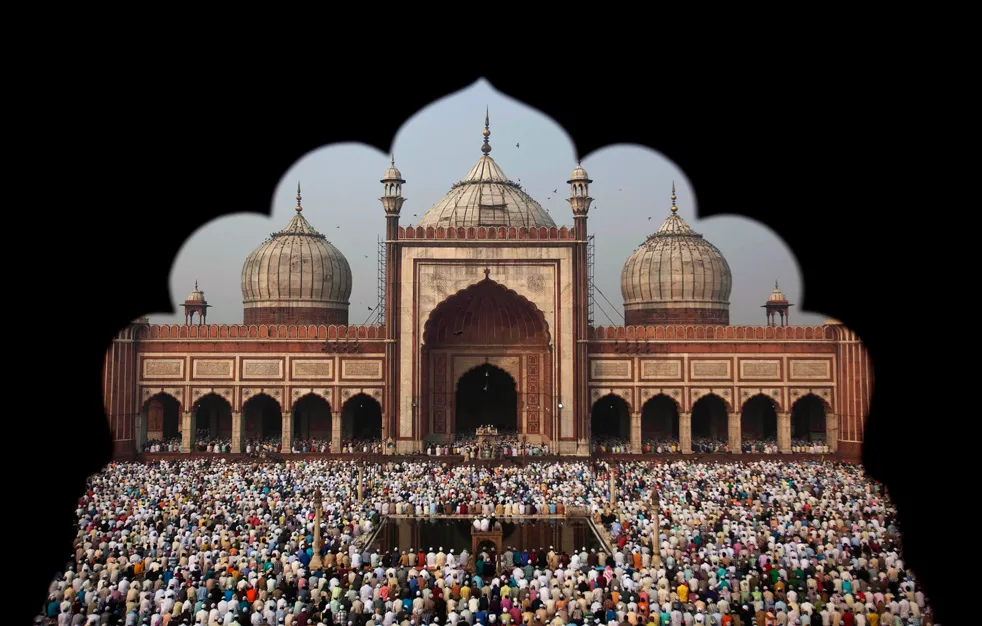Eid Al Adha, also known as the Festival of Sacrifice, is an important religious holiday celebrated by Muslims all around the world. This holiday marks the end of the Hajj pilgrimage to Mecca and commemorates the willingness of Prophet Ibrahim (Abraham) to sacrifice his son as an act of obedience to Allah.
This holiday holds a deep significance for the Muslim community as it represents the ultimate act of submission to the will of Allah and the demonstration of one’s devotion to their faith. It also serves as a reminder of the importance of sacrifice and the giving of charity to those in need.
This holiday is a time for family gatherings, exchanging gifts, and feasting on delicious food. It is a time to reflect on the blessings in our lives and to strengthen our ties with our loved ones and with Allah.
Contents
Origin and History

Eid Al Adha has its roots in the story of Prophet Ibrahim (Abraham) and his unwavering faith in Allah. According to Islamic tradition, Allah commanded Prophet Ibrahim to sacrifice his son Ishmael as a test of his devotion.
As Prophet Ibrahim prepared to carry out the command, Allah intervened and provided a lamb to sacrifice in place of his son. This act of obedience and sacrifice has been remembered and celebrated by Muslims for generations, and is the origin of the holiday.
Over the centuries, the tradition of sacrificing an animal has evolved into a symbol of the willingness to make sacrifices for the sake of one’s faith, and the holiday has become a time for Muslims to demonstrate their devotion through acts of charity and generosity.
Today, Eid Al Adha is one of the most important holidays in the Muslim calendar and is celebrated with great joy and celebration by communities all around the world.
Celebrations and Traditions

Eid Al Adha is a time of joyful celebrations and meaningful traditions. On this holiday, Muslims participate in religious rituals and prayers to demonstrate their devotion to Allah. This is followed by festive meals and gatherings with family and friends, as they come together to enjoy delicious food and share in the spirit of the holiday.
Gift-giving and charity are also important parts of the celebrations, as Muslims take this opportunity to show kindness and generosity to those in need.
The most significant tradition of this holiday is the animal sacrifice, which symbolizes Prophet Ibrahim’s willingness to sacrifice his son for Allah and serves as a reminder of the importance of selflessness and devotion.
These celebrations and traditions come together to make this holiday a truly special and meaningful holiday for Muslims all around the world.
Cultural Significance

Eid Al Adha is a time of unity and community, as families and friends come together to celebrate and exchange well wishes. It is a time to reflect on the year past and to renew their commitments to their faith and to one another.
During this holiday, the spirit of gratitude and generosity is celebrated as Muslims participate in acts of charity and sharing with those less fortunate. This holiday serves as a reminder of the importance of coming together as a community and the significance of selflessness and sacrifice.
As a result, Eid Al Adha continues to play a crucial role in reinforcing the bonds of unity and solidarity within the Muslim community.
Global Celebrations

Eid Al Adha is celebrated globally, with each region putting its own cultural spin on the festivities. From the bustling city streets of Cairo to the rural villages of Indonesia, the holiday is a time for coming together and celebrating the communal spirit.
In some countries, such as Saudi Arabia, the holiday is marked by large communal prayers and the sacrifice of livestock. In others, such as Pakistan, it is customary to exchange gifts and enjoy lavish feasts with friends and family.
Yet, in other countries, like Turkey, the holiday is celebrated with a carnival-like atmosphere complete with food stalls, games, and traditional dance performances.
Regardless of the specific traditions, one thing remains constant across all celebrations of Eid Al Adha: the joy and togetherness that come with the holiday.
Whether through communal prayers, gift exchanges, or feasting, the holiday provides an opportunity for Muslims to come together and celebrate their shared faith and cultural heritage.
From the bustling metropolises of the Middle East to the remote villages of Africa, Eid Al Adha is a time for unity and joy, a time for coming together as a global community to celebrate one of the most important holidays in the Islamic calendar.
Video: BBC bitesize. What is Eid-ul-Adha
In this video created by BBC, we look at the significance of Eid-ul-Adha, or the Festival of Sacrifice. We learn about the history of the holiday, how it is celebrated around the world, and how Muslims observe this important day in their faith. If you would like to know how you can observe this holiday, you can find the answers here.
Frequently Asked Questions
1. What is Eid Al Adha and when is it celebrated?
Eid Al Adha is a major religious holiday celebrated by Muslims around the world to mark the end of the Hajj pilgrimage to Mecca. It is observed on the 10th day of Dhu al-Hijjah, the final month of the Islamic calendar.
2. What is the significance of Eid Al Adha?
Eid Al Adha commemorates the willingness of Prophet Ibrahim (Abraham) to sacrifice his son as an act of obedience to Allah. It represents the ultimate act of submission to the will of Allah and the demonstration of one’s devotion to their faith.
3. How is Eid Al Adha celebrated?
Eid Al Adha is celebrated with prayers, feasting, gift-giving, and other festivities. In some countries, the sacrifice of livestock is also a part of the celebrations.
4. Is Eid Al Adha a national holiday?
Eid Al Adha is a religious holiday and its observance as a national holiday varies from country to country. In some Muslim-majority countries, it is recognized as a national holiday, and many businesses close for the day.
5. What is the significance of sacrificing animals during Eid Al Adha?
The sacrifice of animals is a symbolic act that represents Prophet Ibrahim’s willingness to sacrifice his son as an act of obedience to Allah. The meat from the sacrifice is typically divided into three parts, with one portion given to the poor and needy, one portion kept for the family, and one portion given to friends and neighbors. The act of sacrifice is a reminder of the importance of giving to those in need and the demonstration of one’s devotion to their faith.
Final Thoughts

In conclusion, Eid Al Adha is a holiday that brings people together to celebrate their shared faith and cultural heritage. It is a time to give thanks for the blessings in our lives, to sacrifice and give to those in need, and to come together as a community.
Whether through prayer, gift-giving, or feasting, the holiday provides an opportunity for Muslims to demonstrate their devotion to their faith and to celebrate their unity as a global community.
Eid Al Adha is a truly special time of year and its celebration is a testament to the resilience and strength of the Muslim community.
READ NEXT: Here are Five Tips to Enjoy Your Travel this Eid Al Adha
